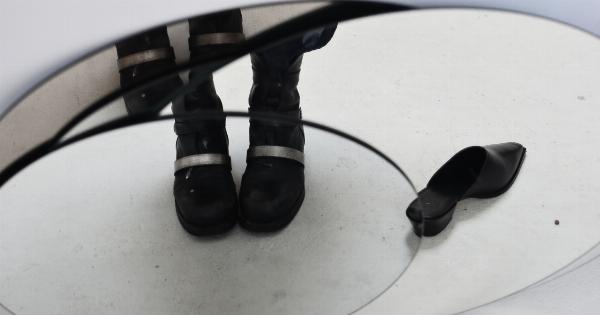Listachia is a rare but serious medical condition that affects the nervous system. It is characterized by the inflammation of the listachia gland, which is a small gland located at the base of the brain.
This gland plays a crucial role in the regulation of various bodily functions, including hormone production and the immune system.
Symptoms of Listachia
The symptoms of listachia can vary from person to person depending on the severity of the condition. Some common symptoms include:.
- Severe headaches
- Nausea and vomiting
- Dizziness and imbalance
- Blurred vision or vision loss
- Difficulty in coordination
- Personality changes
- Memory problems
- Confusion or disorientation
- Seizures
- Loss of consciousness
Causes and Risk Factors
The exact cause of listachia is not fully understood. However, it is believed to occur due to a combination of genetic and environmental factors. Some risk factors that may increase the likelihood of developing listachia include:.
- Genetic predisposition
- Exposure to certain viruses or infections
- Autoimmune disorders
- Head trauma or injury
- Exposure to toxins or chemicals
Diagnosis
Diagnosing listachia can be challenging as its symptoms are similar to those of other neurological disorders. However, a thorough medical evaluation and diagnostic tests can help in confirming the condition. Some common diagnostic methods include:.
- Neurological examination to assess reflexes, coordination, and balance
- Magnetic Resonance Imaging (MRI) to visualize the listachia gland and surrounding structures
- Lumbar puncture (spinal tap) to analyze the cerebrospinal fluid for signs of inflammation or infection
- Blood tests to rule out other potential causes and evaluate immune system function
Treatment Options
The treatment approach for listachia depends on the severity of the symptoms and the underlying cause. In some cases, it may resolve on its own without intervention.
However, when treatment is necessary, it primarily focuses on managing symptoms and preventing complications. Some common treatment options include:.
- Medications to reduce inflammation, control pain, and manage other symptoms
- Physical therapy to improve balance, strength, and coordination
- Surgical intervention to treat underlying causes or relieve pressure on the listachia gland
- Supportive care to address any psychological or emotional challenges
Prevention
While there is no guaranteed way to prevent listachia, adopting a healthy lifestyle and taking certain precautions may help reduce the risk. Here are some preventive measures:.
- Regular exercise and physical activity to maintain a healthy weight and promote overall well-being
- Protective gear and helmets to prevent head injuries
- Avoidance of toxins, chemicals, and environmental pollutants
- Proper treatment and management of infections or autoimmune disorders
- Maintaining a balanced diet rich in antioxidants and other essential nutrients
Living with Listachia
Living with listachia can be challenging, but with proper treatment and self-care, it is possible to lead a fulfilling life. Here are some tips for managing life with listachia:.
- Follow the recommended treatment plan and take medications as prescribed
- Create a supportive network of family and friends
- Seek counseling or therapy if needed, to cope with emotional and psychological challenges
- Manage stress levels through relaxation techniques such as yoga or meditation
- Maintain open communication with healthcare providers and report any changes in symptoms
- Engage in activities that bring joy and enhance overall well-being
Conclusion
Listachia is a rare neurological condition that affects the listachia gland and can lead to various symptoms and complications.
While the exact cause is unknown, early diagnosis and appropriate treatment can help manage the condition and improve quality of life for individuals with listachia. By adopting a healthy lifestyle and taking preventive measures, one can reduce the risk of developing this condition. If you or someone you know experiences any symptoms associated with listachia, it is essential to seek medical attention promptly.































